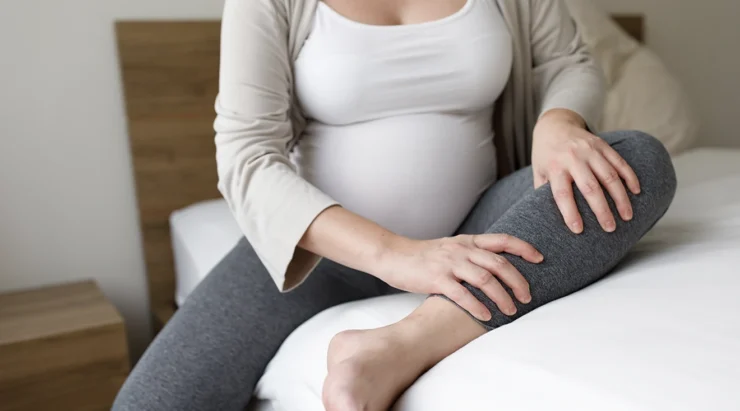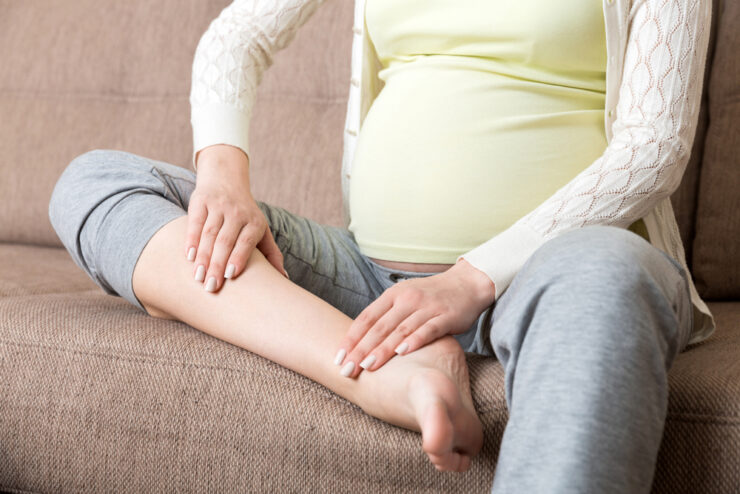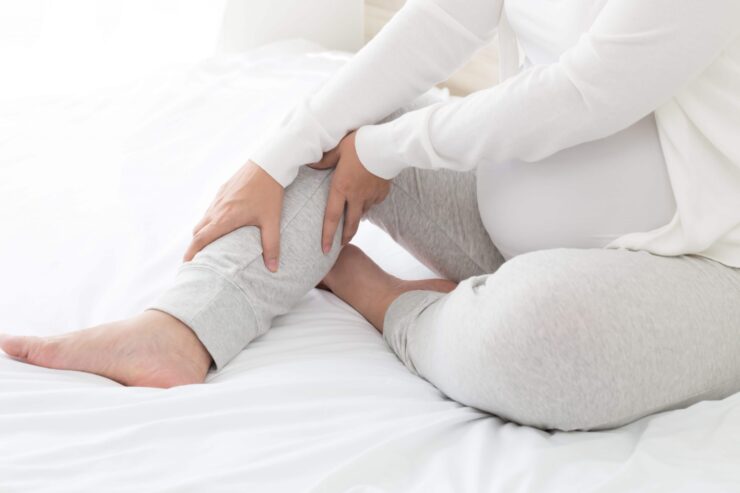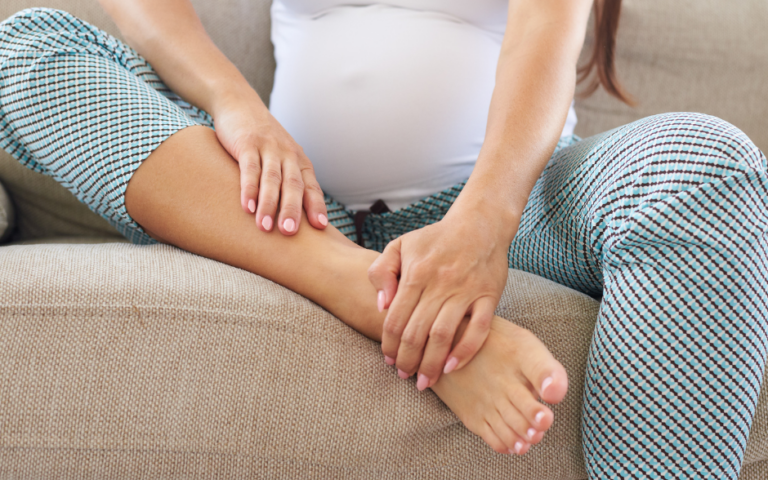From the exhilaration of feeling that first flutter to the anticipation of bringing a new life into the world, pregnancy offers a medley of emotions and experiences. Yet, it isn’t without its physical discomforts. One such discomfort is the onset of muscle cramps. By delving deep into the subject, this article seeks to enlighten and empower expecting mothers and those around them.
Physiology of Muscle Cramps

Muscle cramps, succinctly put, are involuntary contractions or spasms within our muscles. Often sudden and sharp, these contractions can last from a few seconds to several minutes. They occur when a muscle gets overly excited and contracts, but then fails to properly relax.
During gestation, a woman’s body undergoes numerous changes. These changes, both hormonal and physical, can lead to altered neuromuscular functioning. Such alterations can make the body more susceptible to involuntary spasms, resulting in these painful cramps. For more on muscle cramps, check this.
Common Areas Affected
For pregnant women, the calf muscles often become the epicenter of these unwelcome contractions. Especially during the night, these spasms can jolt a woman awake, causing much discomfort. Besides the calves, foot arches might also get crampy, causing one to involuntarily curl their toes.
Yet, it’s not just the lower extremities that bear the brunt. Some expecting mothers also experience cramps in their thighs or even the abdomen. Though these are less common, they underscore the varied nature of pregnancy-related cramps and the need to understand their root causes.
Causes in Pregnancy

One might wonder why these muscle spasms are prevalent during pregnancy. The truth is, there isn’t a singular answer. Multiple factors intertwine, making pregnant women more prone to such discomforts.
An increase in the mother’s weight, combined with altered posture and the strain it puts on her muscles and nerves, plays a role. The growing uterus exerts pressure on the nerves leading to the legs, sometimes triggering cramps.
Hormonal Changes
Pregnancy heralds a symphony of hormonal changes. The surge of certain hormones can affect muscle function. For instance, the hormone relaxin, responsible for loosening the pelvis in preparation for childbirth, can sometimes lead to laxity elsewhere in the body.
Progesterone, another key hormone, impacts the function and can contribute to fatigue and cramps. Its elevated levels can slow down contractions, leading to spasms and discomfort.
Nutritional Factors
During gestation, a woman’s nutritional needs undergo a significant shift. A deficiency in vital minerals such as calcium or magnesium can predispose one to cramps. As the fetus develops, it requires an increasing amount of these minerals, sometimes at the expense of the mother.
Conversely, an excess of phosphates, often found in carbonated drinks, can interfere with the body’s ability to absorb calcium, leading to an imbalance. This, in turn, can make the muscles more prone to spasming.
Dehydration and Electrolyte Imbalance

A body’s hydration levels and the balance of its electrolytes are integral to muscle health. Pregnancy increases fluid requirements, making dehydration a lurking concern. Insufficient hydration can cause muscle tissues to become irritable, leading to spasms.
Electrolytes, particularly sodium, potassium, and calcium, play vital roles in contractions. Imbalances in these can disturb the electrical impulses in muscles, making cramps more likely.
Increased Pressure on Muscles
As the baby grows and the uterus expands, the increased weight puts a strain on a mother’s muscles, particularly those of the legs. This additional pressure can lead to fatigue and resultant cramping.
Apart from the physical weight, the expanding uterus can press against blood vessels, restricting blood flow to certain muscles. This diminished circulation can, in some cases, precipitate cramping.
Coping Strategies for Muscle Cramps
As we’ve unraveled the causes, let’s pivot towards solutions. Armed with the right knowledge, one can employ strategies to minimize or even prevent these bothersome cramps.
The first line of defense is often dietary. Ensuring an adequate intake of calcium, magnesium, and potassium can play a pivotal role in warding off cramps. Supplements might be an option, but it’s vital to consult with a healthcare provider first.
Staying Hydrated and Maintaining Electrolyte Balance

Water, the elixir of life, becomes even more crucial during pregnancy. Drinking enough water ensures muscles remain supple, reducing the likelihood of cramps. While the exact requirement can vary, aiming for about 8-10 glasses a day can be beneficial.
Including electrolyte-rich foods in one’s diet, or occasionally sipping on electrolyte solutions, can help maintain balance. Foods like bananas, sweet potatoes, and spinach are excellent sources of essential electrolytes.
Gentle Prenatal Exercises and Stretching
While rest is crucial during pregnancy, so is gentle activity. Engaging in low-impact exercises can boost circulation and muscle strength, reducing the risk of cramps. Prenatal yoga or simple stretching routines can be immensely beneficial.
Importantly, whenever a cramp strikes, stretching the affected muscle gently can provide instant relief. Flexing the foot upwards, for instance, can alleviate calf cramps. Always ensure movements are slow and controlled to avoid injury.
Dietary Recommendations to Prevent Muscle Cramps
The power of nutrition cannot be understated, especially during the tender phase of gestation. To combat muscle cramps, incorporating magnesium-rich foods like almonds, avocados, and legumes is a smart move. Pair that with calcium sources like dairy products or fortified plant-based milk. Not to forget, vitamin D enhances calcium absorption, so a splash of sunlight or fortified foods can be invaluable. Lastly, reduce the intake of phosphorus-heavy beverages, and instead indulge in leafy greens, fish, and whole grains to ensure a balanced, cramp-combating diet.
Managing Muscle Cramps at Night

Nocturnal cramps can be particularly vexing, disrupting precious sleep. Establishing a bedtime routine that includes gentle leg stretches can be a game-changer. Consider pointing and flexing the feet or rotating the ankles to stimulate circulation. Using a warm compress or massaging the legs with calming oils before sleep can also relax the muscles. Elevating the foot end of the bed slightly aids in blood circulation, possibly preventing cramps. Lastly, ensure a comfortable sleeping position, preferably on the left side with legs slightly bent, to reduce the chances of night-time discomfort.
Final Thoughts
Navigating the labyrinth of pregnancy requires patience, understanding, and a touch of resilience. While muscle cramps can be an unwelcome guest, understanding their causes and adopting effective coping strategies can make the journey smoother. Here’s to informed and empowered choices, making pregnancy not just an ordeal, but a joyous odyssey.

